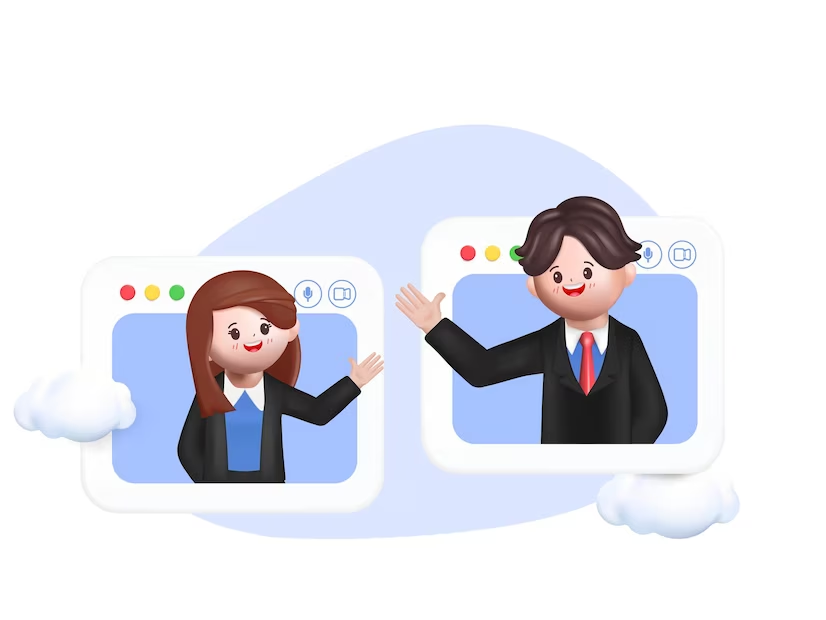In today’s highly competitive business landscape, customer experience has become a critical differentiator for companies across industries. Customer experience refers to the overall perception and interaction that customers have with a brand throughout their entire journey – from the initial touchpoint to post-purchase support.
As per research conducted by CX solution provider MetricsXM, there are certain top skills that an employee needs to have. Only then can they be considered a valuable asset for job interviews at any organization. Offering good customer experiences is one of these must-have skills.
A positive customer experience is crucial for businesses as it not only helps in building strong relationships with customers but also contributes to increased loyalty, repeat purchases, and positive word-of-mouth. On the other hand, a poor customer experience can lead to customer churn, negative reviews, and damage to the brand’s reputation.
Customer experience encompasses various elements such as ease of use, responsiveness, personalized interactions, and consistency across channels. It goes beyond just providing satisfactory products or services and focuses on creating memorable moments that leave a lasting impression on customers.
Why is Customer Service Important?

Customer service plays a vital role in shaping the overall customer experience. It refers to the support and assistance provided by an organization to its customers before, during, and after a purchase. A strong customer service strategy is essential because it directly impacts customer satisfaction levels and influences their perception of the brand.
Here are some key reasons why customer service is important:
1. Customer Retention: Excellent customer service builds trust and loyalty among customers, increasing the chances of repeat business. Increasing customer retention rates by just 5% can lead to a 25% to 95% increase in profits.
2. Positive Word-of-Mouth: Satisfied customers are more likely to recommend a brand to others. Positive word-of-mouth generated through exceptional customer service helps in acquiring new customers at lower costs compared to traditional marketing efforts.
3. Brand Reputation: The way a company handles customer inquiries, complaints, and requests can significantly impact its reputation. Good customer service creates a positive brand image and enhances credibility.
4. Competitive Advantage: In today’s competitive landscape, where products and services are becoming increasingly similar, exceptional customer service can be a key differentiator for businesses.
5. Customer Insights: Effective customer service interactions provide an opportunity to gather valuable feedback and insights that can inform product improvements, marketing strategies, and overall business decisions.
CXM in 2024
Customer experience has made a shift from conventional channels like calls and emails to social media. To be a successful customer experience management professional you have to be able to learn the necessary skills to manage social media conversations.
The current market is such that the customer has a variety of channels at their disposal to contact a brand. Brands and agents need to be prepared to address customers effectively and strategically irrespective of the channel that they use.
A brand may be using a contact center to address their inbound calls. They may additionally have a separate chatbot and live chat platform. They may be addressing email tickets from their CRM where all the customers’ data is stored and a separate community engagement platform to respond to social media tickets. This is a classic example of a siloed approach to CXM, and this is exactly what you as a pro need to avoid.
Implementing a platform like Konnect Insights can enable you to get an omnichannel approach to your CXM by integrating all these platforms and getting one view of the customer. By doing so you can consolidate all customer data under one platform and when a customer raises a query, you have all their information at your fingertips. In this way, you can ensure that you are delivering the best customer experience to them.
If you would like to master modern day CXM, CLICK HERE and register for the Konnect Insights Academy for free and gain access to CXM training curated by industry experts and learn how to implement your CXM using the Konnect Insights Academy.
Get certified for free today! REGISTER NOW
Skills to develop as a Customer Experience PRO

The customer experience management industry as we have previously discussed is ever-evolving and it is important to ensure that you are up to date with the latest technology and trends however some skills are such that once mastered, can prove very beneficial in your professional CXM journey
Being a successful customer experience professional requires a unique blend of skills that enable the creation and execution of effective strategies to enhance the overall customer journey. Here are seven must-have skills for professionals working in customer experience roles:
1. Strategic Outlook
A strategic outlook is crucial for customer experience professionals as it helps them align their efforts with business goals and objectives. They should have a deep understanding of the company’s vision and be able to translate it into actionable plans that drive meaningful experiences for customers.
Customer experience professionals need to be able to analyze market trends, competitor activities, and customer insights to identify areas where improvements can be made.
2. Data-driven Mindset
In today’s data-driven world, customer experience professionals need to be comfortable working with data and deriving actionable insights from it. They should possess strong analytical abilities to interpret complex datasets, identify patterns, and uncover actionable insights that can drive impactful improvements in the customer journey.
Professionals should have a solid understanding of various analytical tools, technologies, and methodologies used in data analysis. This includes proficiency in using customer relationship management (CRM) systems, social listening tools, web analytics platforms, and other relevant technologies.
3. Communication and Storytelling
Effective communication is a fundamental skill for customer experience professionals as it enables them to convey their ideas, strategies, and recommendations clearly to stakeholders across the organization. Strong written and verbal communication skills are essential for presenting data-driven insights, making persuasive arguments, and influencing decision-making processes.
Customer experience professionals should also possess exceptional storytelling abilities. By crafting compelling narratives that highlight the value of exceptional customer experiences, they can engage stakeholders at an emotional level and drive support for customer-centric initiatives.
4. Relationship Building
Building meaningful relationships with customers is at the core of delivering exceptional experiences. Customer experience professionals should have strong relationship-building skills that enable them to establish trust and rapport with customers.
This includes active listening skills to truly understand customers’ needs, preferences, and pain points. By empathizing with customers’ challenges, professionals can build stronger connections and provide personalized solutions that address their specific requirements.
Professionals should also be proficient in managing relationships with internal stakeholders across departments such as marketing, sales, product development, and operations. Collaboration is key in delivering cohesive experiences across multiple touchpoints, and effective relationship building ensures alignment towards common goals.
5. Project Management and Process Simplification
Customer experience initiatives often involve cross-functional collaboration and require effective project management skills. Professionals should be adept at managing projects from initiation to completion – setting clear objectives, defining project scope, allocating resources, mitigating risks, and ensuring timely delivery.
Simplifying processes is also a critical skill for customer experience professionals. They should be able to identify bottlenecks or friction points in existing processes and propose streamlined solutions that enhance efficiency and remove unnecessary complexities.
6. Empathy and Listening Skills
Empathy is a vital skill for customer experience professionals as it allows them to truly understand customers’ needs, emotions, and motivations. By putting themselves in the customers’ shoes, professionals can design experiences that address pain points and evoke positive emotions.
Active listening skills are also crucial for understanding customers’ feedback, inquiries, or complaints effectively. Professionals should be able to listen attentively, ask clarifying questions, and provide empathetic responses that demonstrate genuine concern for customers’ well-being.
7. Adaptability
Customer experience professionals need to be adaptable in an ever-changing business landscape. The ability to quickly adjust strategies based on new market dynamics or emerging technologies is crucial for staying ahead of the competition.
Professionals should stay updated with industry trends, best practices, and new technologies relevant to customer experience management. Keeping pace with evolving customer expectations requires a growth mindset and a commitment to continuously learning and expanding one’s skill set.
What can you do to become a PRO?
You can consider enrolling for online courses that give hands-on experience for CXM training. One such course that is gaining much popularity is the Konnect Insights Academy. This is a free course where you can learn practical aspects of the CXM industry. It has been curated with experts in the industry and guarantees to bring you all the relevant knowledge and skills required to become a CXM PRO.
Conclusion
The role of customer experience professionals is becoming increasingly important in today’s competitive business environment. By cultivating these seven must-have skills – strategic outlook, data-driven mindset, communication and storytelling abilities, relationship-building skills, project management and process simplification expertise, empathy and listening skills, and adaptability – professionals can excel in delivering exceptional customer experiences.
By understanding the principles of good customer service and leveraging their skills effectively, professionals can contribute to building a customer-centric culture within organizations, driving loyalty, advocacy, and sustainable business growth.






























